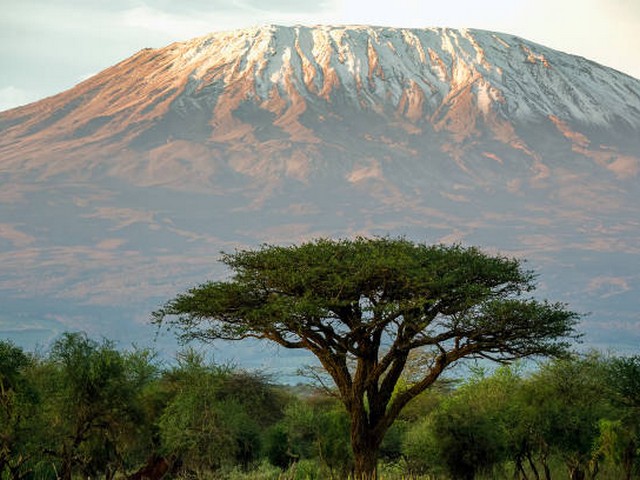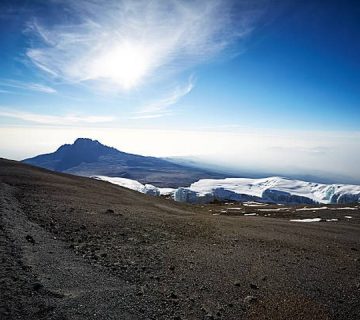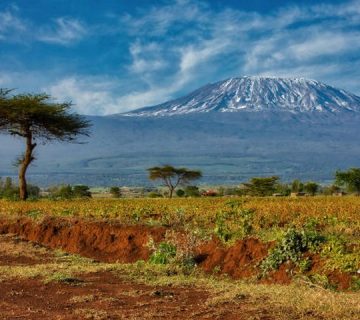How Kilimanjaro Supports Cultural Preservation In Tanzania
Nestled in the heart of Tanzania, the majestic Mount Kilimanjaro isn’t just a stunning natural wonder; it’s a vibrant catalyst for cultural preservation. At the Kilimanjaro Centre for Trekking and Ecotourism (KCTE), we understand that Kilimanjaro is more than just a mountain. It’s a symbol of national pride, a source of inspiration, and a focal point for preserving the rich tapestry of Tanzanian culture. In this blog, we’ll explore how Kilimanjaro plays a crucial role in sustaining and celebrating the heritage of this beautiful region.
Unveiling the Cultural Significance of Kilimanjaro
The Spiritual Heart of the Chagga People
Mount Kilimanjaro is deeply intertwined with the cultural identity of the Chagga people, one of the indigenous ethnic groups living on its slopes. For centuries, this towering mountain has been a sacred site, believed to be the home of the gods. Traditional rituals and ceremonies are performed here, offering a window into the spiritual practices that have been passed down through generations. As trekkers, understanding these traditions enriches our journey, connecting us with the soul of Kilimanjaro.
A Living Museum of Traditional Practices
Kilimanjaro is not just a spiritual hub; it’s also a living showcase of traditional Tanzanian practices. From ancient farming techniques still used on its slopes to the art of coffee cultivation—introduced in the 19th century and perfected over the decades—Kilimanjaro supports a way of life that respects the rhythms of nature. These practices are not only sustainable but also serve as a heritage that locals proudly pass on to future generations.
Kilimanjaro: A Beacon for Cultural Tourism
Promoting Responsible Ecotourism
As a premier destination for climbers and adventurers from around the world, Kilimanjaro offers a unique opportunity for cultural exchange and understanding. At KCTE, we are committed to responsible tourism that honors and supports the local culture. Our tours are designed not only to showcase the breathtaking beauty of the mountain but also to create meaningful interactions with local communities. By choosing to trek with us, you contribute to a sustainable tourism model that respects and uplifts local customs and traditions.
Celebrating Tanzanian Art and Craftsmanship
The journey to Kilimanjaro’s summit transcends physical endurance; it’s a cultural immersion. Along the trekking routes, local artisans display their crafts, from intricately woven baskets to hand-carved wooden sculptures. These items are more than souvenirs; they are stories woven and carved by the hands of local craftsmen and women. Purchasing these artifacts directly supports the artisans and helps keep traditional crafts alive.
Educational Impact of Kilimanjaro on Local Communities
Schools and Educational Programs
Education is pivotal in cultural preservation. Many schools around Kilimanjaro integrate local history and traditions into their curriculum, ensuring that young Tanzanians grow up with a deep appreciation and understanding of their heritage. Moreover, several educational initiatives funded by tourism revenue focus on teaching the youth skills such as language preservation, ecological conservation, and cultural heritage management.
Language Preservation
The languages spoken around Kilimanjaro, including Chagga and Maasai, are an integral part of Tanzania’s cultural heritage. Educational programs aimed at language preservation are crucial in maintaining these linguistic traditions. By engaging with local communities and learning a few phrases in their languages, trekkers add value to their experience and participate in sustaining the cultural landscape of the region.
How You Can Contribute to Cultural Preservation by Climbing Kilimanjaro
Choosing KCTE as Your Guide
When you decide to climb Kilimanjaro with the Kilimanjaro Centre for Trekking and Ecotourism, you choose a partner who deeply respects and actively promotes the cultural heritage of Tanzania. We ensure that a portion of our profits is reinvested into local communities, supporting cultural preservation projects, local artisans, and educational programs that make a real difference.
Engaging with Culture Responsibly
We encourage all our climbers to engage with local culture in a respectful and mindful manner. This means learning about local customs, participating in cultural activities, and understanding the significance of places and practices. Our guides are trained to provide you with the knowledge to appreciate and respect the cultural nuances of the communities around Kilimanjaro.
Conclusion: Summiting Kilimanjaro, Preserving Culture
Climbing Kilimanjaro is an adventure of a lifetime, but it is also a journey into the heart of Tanzanian culture. Every step you take towards the summit is a step towards understanding and preserving the incredible heritage of this region. At KCTE, we are proud to facilitate this journey and invite you to join us in not only reaching the roof of Africa but also in becoming ambassadors for cultural preservation.
Ready to Embark on Your Journey?
Book your climb with Kilimanjaro Centre for Trekking and Ecotourism today, and be a part of a trekking experience that treasures the mountain and its cultural heritage. Reach out to us to plan your culturally enriching adventure on the majestic slopes of Kilimanjaro.
FAQ
How does climbing Kilimanjaro support local communities?
Climbing with KCTE ensures that a portion of your trekking fees goes directly to local community projects, including education, cultural preservation, and economic support through local employment.
What can I do to respect local culture during my climb?
Engage with local communities, learn a few words in the local language, appreciate and buy local crafts, and follow the guidelines provided by your KCTE guides regarding respectful behavior.
Is there a best time of year to experience cultural activities on Kilimanjaro?
Cultural activities occur year-round, but visiting during local festivals or ceremonies can provide deeper insights into the traditions of the communities living around Kilimanjaro. Contact KCTE for details on timing your visit.
Climb with us, learn with us, and help preserve the rich culture of Kilimanjaro with every step you take.




